- Home
- Hilary Mantel
Beyond Black Page 3
Beyond Black Read online
Page 3
Isn’t there? Relief dawned on the woman’s face; or an emotion that would be relief, when it clarified; for the moment she was tremulous, a hand on her ribs, folded in on herself as if to protect the space of the pain. It would take her some time to give up thinking it was cancer.
Now it’s the glasses ploy. Look for a woman in middle age who isn’t wearing glasses and say, have you had your eyes tested recently? Then the whole world of optometry is at your command. If she had an eye test last week, she’ll say, yes, as a matter of fact I have. They’ll applaud. If she says no, not recently, she’ll be thinking, but I know I ought to … and you say, get it checked, I’ve a feeling you need a new prescription. As for the woman who says she wears no glasses ever: oh, my love, those headaches of yours! Why don’t you just pop along to Boots? I can see you, a month from now, in some really pretty squarish frames.
You could ask them if they need to see the dentist, since everybody does, all the time; but you don’t want to see them flinch. You’re giving them a gentle nudge, not a pinch. It’s about impressing them without scaring them, softening the edges of their fright and disbelief.
“This lady—I see a broken wedding ring—did you lose your husband? He passed quite recently? And very recently you planted a rosebush in his memory.”
“Not exactly,” the woman said. “I placed some—in fact it was carnations—”
“Carnations in his memory,” said Al, “because they were his favourite, weren’t they?”
“Oh, I don’t know,” said the woman. Her voice slid off the mike; she was too worried to keep her head still.
“You know, aren’t men funny?” Al threw it out to the audience. “They just don’t like talking about these things; they think it means they’re oversensitive or something—as if we’d mind. But I can assure you, he’s telling me now, carnations were his favourite.”
“But where is he?” the woman said, still off the mike. She wasn’t going to quarrel about the flowers; she was pressed against the back of her seat, almost hostile, on the verge of tears.
Sometimes they waited for you afterwards, the punters, at the back exit, when you were running head down for the car park. In the ghastly lights behind the venue, in the drizzle and the rain, they’d say, when you gave me the message I didn’t know, I didn’t understand, I couldn’t take it in. “I know it’s difficult,” Al would say, trying to soothe them, trying to help them, but trying, for God’s sake, to get them off her back; she would be sweating, shaking, desperate to get into the car and off. But now, thank God, she had Colette to manage the situation; Colette would smoothly pass over their business card, and say, “When you feel ready, you might like to come for a private reading.”
Now Alison fished around in the front rows for somebody who’d lost a pet and found a woman whose terrier, on an impulse three weeks ago, had dashed out of the front door into the traffic. “Don’t you listen,” she told the woman, “to people who tell you animals have no souls. They go on in spirit, same as we do.”
Animals distressed her, not cats but just dogs: their ownerless whimper as they padded though the afterlife on the trail of their masters. “And has your husband gone over too?” she asked, and when the woman said yes, she nodded sympathetically but pulled her attention away, throwing out a new question, changing the topic: “Anybody over here got blood pressure?”
Let her think it, that dog and master are together now; let her take comfort, since comfort’s what she’s paid for. Let her assume that Tiddles and his boss are together in the Beyond. Reunion is seldom so simple; and really it’s better for dogs—if people could just grasp it—not to have an owner waiting for them, airside. Without a person to search for, they join up in happy packs, and within a year or two you never hear from them individually: there’s just a joyful corporate barking, instead of that lost whine, the sore pads, the disconsolate drooping head of the dog following a fading scent. Dogs had figured in her early life—men, and dogs—and much of that life was unclear to her. If you knew what the dogs were up to, she reasoned, if you knew what they were up to in Spirit World, it might help you work out where their owners were now. They must be gone over, she thought, most of those men I knew when I was a child; the dogs, for sure, are in spirit, for years have passed and those kinds of dogs don’t make old bones. Sometimes in the supermarket she would find herself standing in Pets, eyeing the squeaky toys, the big tough chews made for big friendly jaws; then she would shake herself and move slowly back towards organic vegetables, where Colette would be waiting with the cart, cross with her for vanishing.
She will be cross tonight, Al thought, smiling to herself: I’ve slipped up again about the blood pressure. Colette has nagged her, don’t talk about blood pressure, talk about hypertension. When she’d argued back—“They might not understand me”—Colette lost her temper and said, “Alison, without blood pressure we’d all be dead, but if you want to sound like something from the remedial stream, don’t let me get in your way.”
Now a woman put her hand up, admitted to the blood pressure. “Carrying a bit of weight, aren’t we, darling?” Al asked her. “I’ve got your mum here. She’s a bit annoyed with you—well no, I’m pitching it a bit high—concerned would be more like it. You need to drop a stone, she’s saying. Can you accept that?” The woman nodded, humiliated. “Oh, don’t mind what they think.” Al swept her hand over the audience; she gave her special throaty chuckle, her woman-to-woman laugh. “You’ve no need to worry about what anybody here’s thinking, we could most of us stand to lose a few pounds. I mean, look at me, I’m a size twenty and not ashamed of it. But your mum now, your mum, she says you’re letting yourself go, and that’s a shame, because you know you’re really—look at you, you’ve got such a lot going for you, lovely hair, lovely skin—well excuse me, but it seems to me your mum’s a plainspoken lady, so excuse me if I offend anybody, she’s saying, get up off your bum and go to the gym.”
This is Al’s public self: a little bit jaunty and a little bit crude, a bit of a schoolmistress and a bit of a flirt. She often speaks to the public about “my wicked sense of humour,” warning them not to take offence; but what happens to her sense of humour in the depth of the night, when she wakes up trembling and crying, with Morris crowing at her in the corner of the room?
Colette thought, you are a size 26 and you are ashamed of it. The thought was so loud, inside her own head, that she was amazed it didn’t jump out into the hall.
“No,” Al was saying, “please give the mike back to this lady, I’m afraid I’ve embarrassed her and I want to put it right.” The woman was reluctant, and Al said to her neighbour, “Just hold that mike steady under her chin.” Then Alison told the fat woman several things about her mother, which she’d often thought but not liked to admit to. “Oh, and I have your granny. Your granny’s coming through. Sarah Anne? Now she’s an old soul,” Al said. “You were five when she passed, am I right?”
“I’m not sure.”
“Speak up, my love.”
“Small. I was small.”
“Yes, you don’t remember much about her, but the point is she’s never left you, she’s still around, looking after the family. And she likes those cabinets you’ve got—I can’t quite make this out—a new kitchen, is it?”
“Oh, my God. Yes,” the woman said. “Yes.” She shifted in her seat and turned bright red.
Al chuckled, indulging her surprise. “She’s often with you in that kitchen. And by the way, you were right not to go for the brushed steel, I know they tried to talk you into it, but it’s so over and done with, there’s nothing worse than a dated kitchen when you come to sell, and besides it’s such a harsh look at the heart of the home. Sarah Anne says, you won’t go wrong with light oak.”
They burst into applause: the punters, the trade. They are deeply appreciative of information about their kitchen fittings; they marvel at your uncanny knowledge of where they position their bread bin. This is how you handle them; you tell them the small th
ings, the personal things, the things no one else could really know. By this means you make them drop their guard; only then will the dead begin to speak. On a good night, you can hear the scepticism leaking from their minds, with a low hiss like a tyre deflating.
Someone in uniform was trying to get through. It was a policeman, young and keen, with a flushed face; he was eager for promotion. She worked the rows, but no one would own him. Perhaps he was still earthside, employed at the local station; you did get these crossed wires, from time to time. Something to do with radio frequencies, perhaps?
“This lady, have you got ear trouble? Or ear trouble somewhere in the family?” Slowly, the barmaid lurched across the hall in her platform shoes, the mike held out at arm’s length.
“What?” the woman said.
“Ear trouble.”
“The boy next door to me plays football,” the woman said. “He’s done his knee up. He was getting in trim for the World Cup. Not that he’s playing in it. Only in the park. Their dog died last year, but I don’t think it had ear trouble.”
“No, not your neighbour,” Al insisted. “You, someone close to you.”
“I haven’t got anyone close to me.”
“What about throat trouble? Nose trouble? Anything in the ENT line at all? You have to understand this,” Al said, “when I get a message from Spirit World, I can’t give it back. I can’t pick and choose. Think of me as your answering machine. Imagine if people from Spirit World had phones. Now your answering machine, you press the button and it plays your messages back. It doesn’t wipe some out, on the grounds that you don’t need to know them.”
“And it records the wrong numbers, too,” said a pert girl near the front. She had her friends with her; their sniggers ruffled adjacent rows.
Alison smiled. It was for her to make the jokes; she wouldn’t be upstaged. “Yes, I admit we record the wrong numbers. And we record the nuisance calls, if you like to put it that way. I sometimes think they have telesales in the next world, because I never sit down with a nice cup of coffee without some stranger trying to get through. Just imagine—double glazing salesman … debt collectors …”
The girl’s smile faded. She tensed.
Al said, “Look, darling. Let me give you a word of advice. Cut up that credit card. Throw away those catalogues. You can break these spending habits—well, you must, really. You have to grow up and exercise some self-control. Or I can see the bailiffs in, before Christmas.”
Al’s gaze rested, one by one, on those who had dared to snigger; then she dropped her voice, whipped her attention away from the troublemaker, and became confidential with her audience.
“The point is this. If I get a message I don’t censor it. I don’t ask, do you need it? I don’t ask, does it make sense? I do my duty, I do what I’m here for. I put it out there, so the person it applies to can pick it up. Now people in Spirit World can make mistakes. They can be wrong, just like the living. But what I hear, I pass on. And maybe, you know, what I tell you may mean nothing to you at the time. That’s why I sometimes have to say to you, stay with that: go home: live with it. This week or next week, you’ll go, oh, I get it now! Then you’ll have a little smile, and think, she wasn’t such a fool, was she?” She crossed the stage; the opals blazed.
“And then again, there are some messages from Spirit World that aren’t as simple as they seem. This lady, for example—when I speak about ear trouble, what I may be picking up is not so much a physical problem—I might be talking about a breakdown in communication.” The woman stared up at her glassily. Al passed on.
“Jenny’s here. She went suddenly. She didn’t feel the impact, it was instantaneous. She wants you to know.”
“Yes.”
“And she sends her love to Peg. Who’s Peg?”
“Her aunt.”
“And to Sally, and Mrs. Moss. And Liam. And Topsy.”
Jenny lay down. She’d had enough. Her little light was fading. But wait, here’s another—tonight she picked them up as if she were vacuuming the carpet. But it was almost nine o’clock, and it was quite usual to get onto something serious and painful before the interval. “Your little girl, was she very poorly before she passed? I’m getting—this is not recent, we’re going back now, but I have a very clear—I have a picture of a poor little mite who’s really very sick, bless her.”
“It was leukemia,” her mother said.
“Yes, yes, yes,” Al said, swiftly agreeing, as if she had thought of it first: so that the woman would go home and say, she told me Lisa had leukemia, she knew. All she could feel was the weakness and the heat, the energy of the last battle draining away: the flickering pulse at the hairless temple, and the blue eyes, like marbles under translucent lids, rolling into stillness. Dry your tears, Alison said. All the tears of agony you’ve shed, the world doesn’t know, the world can’t count them; and soberly, the woman agreed: nobody knows, she said, and nobody can count. Al, her own voice trembling, assured her, Lisa’s doing fine airside, the next world’s treated her well. A beautiful young woman stood before her—twenty-two, twenty-three—wearing her grandmother’s bridal veil. But whether it was Lisa or not, Al could not say.
Eight-fifty, by Colette’s watch. It was time for Al to lighten up. You have to start this process no less than eight minutes before the end of the first half. If the interval catches you in the middle of something thrilling and risky, they simply don’t want to break; but she, Al, she needed the break, to get back there, touch base with Colette, gulp a cold drink and redo her face. So she would begin another ward round now, picking up a few aches and pains. Already she was homing in on a woman who suffered from headaches. Don’t we all, Colette thought. It was one of the nets Al could safely cast. God knows, her own head ached. There was something about these summer nights, summer nights in small towns, that made you feel that you were seventeen again, and had chances in life. The throat ached and clogged then; there was tightness behind her eyes, as if unshed tears had banked up. Her nose was running, and she hadn’t got a tissue … Al had found a woman with a stiff left knee and was advising her on traditional Chinese medicine; it was a diversion, but they’d go away disappointed if she didn’t throw in some jargon about meridians and ley lines and chakras and feng shui. Gently, soothingly, she was bringing the first part of the evening to a close; and she was having her little joke now, asking about the lady standing at the back, leaning against the wall there, the lady in beige with a bit of a sniffle.
It’s ridiculous, Colette thought, she can’t possibly see me from where she’s standing. She just, somehow, she must just simply know that at some point in the evening I cry.
“Never mind, my dear,” Al said, “a runny nose is nothing to be ashamed of. Wipe it on your sleeve. We’re not looking, are we?”
You’ll pay for it later, Colette thought, and so she will; she’ll have to regurgitate or else digest all the distress she’s sucked in from the carpet and the walls. By the end of the evening she’ll be sick to her stomach from other people’s chemotherapy, feverish and short of breath; or twitching and cold, full of their torsions and strains. She’ll have a neck spasm, or a twisted knee, or a foot she can hardly put on the floor. She’ll need to climb in the bath, moaning, amid the rising steam of aromatherapy oils from her special travel pack, and knock back a handful of painkillers, which, she always says, she should be allowed to set against her income tax.
Almost nine o’clock. Alison looked up, to the big double doors marked EXIT. There was a little green man above the door, running on the spot. She felt like that little green man. “Time to break,” she said. “You’ve been lovely.” She waved to them. “Stretch your legs, and I’ll see you in fifteen.”
Morris was sprawled in Al’s chair when she came into her dressing room. He had his dick out and his foreskin pushed back, and he’d been playing with her lipstick, winding it up to the top of the tube. She evicted him with a dig to his shin from her pointed toe; dropped herself into the vacated chair—she s
huddered at the heat of it—and kicked off her shoes. “Do yourself up,” she told him. “Button your trousers, Morris.” She spoke to him as if he were a two-year-old who hadn’t learned the common decencies.
She eased off the opals. “My hands have swelled up.” Colette watched her through the mirror. Al’s skin was bland and creamy, flesh and fluid plumping it out from beneath. “Is the air-conditioning working?” She pulled at bits of her clothing, detaching them from the sticky bits of herself.
“As if carnations were anybody’s favourite!” Colette said.
“What?” Al was shaking her hands in the air, as if they were damp washing.
“That poor woman who was just widowed. You said roses, but she said carnations, so then you said carnations.”
“Colette, could you try to bear in mind, I’ve talked to about thirty people since then?”
Alison held her arms in U above her head, her naked fingers spread. “Let the fluid drain,” she said. “Anything else, Colette? Let’s have it.”
“You always say, oh, make a note, Colette, keep your eyes open, listen and tell me what goes right and what goes wrong. But you’re not willing to listen, are you? Perhaps it’s you who’s got the hearing problem.”
“At least I haven’t got a sniffle problem.”
“I can never understand why you take your shoes off, and your rings off, when you’ve got to force them back on again.”
“Can’t you?” Al sipped her black-currant juice, which she brought with her in her own carton. “What can you understand?” Though Al’s voice was lazy, this was turning into a nasty little scrap. Morris had lain down across the doorway, ready to trip up anyone who came in.
“Try thinking yourself into my body,” Al suggested. Colette turned away and mouthed no, thank you. “It’s hot under the lights. Half an hour and I’m fit to drop. I know you’ve been running around with the mike, but it’s easier on the feet to be moving than standing still.”

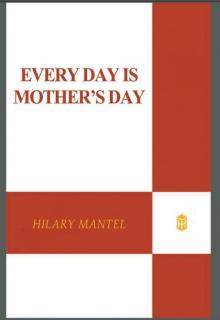 Every Day Is Mother's Day
Every Day Is Mother's Day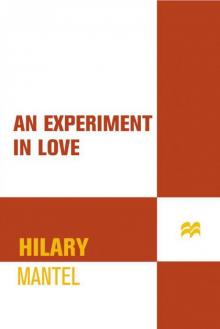 An Experiment in Love
An Experiment in Love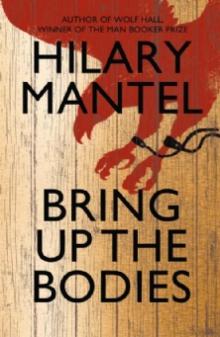 Wolf Hall
Wolf Hall A Place of Greater Safety
A Place of Greater Safety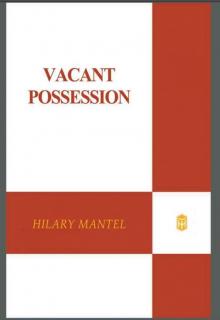 Vacant Possession
Vacant Possession The Giant, O'Brien
The Giant, O'Brien Beyond Black
Beyond Black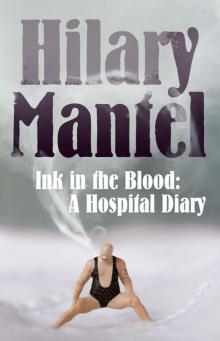 Ink in the Blood: A Hospital Diary
Ink in the Blood: A Hospital Diary The School of English
The School of English Giving Up the Ghost
Giving Up the Ghost The Mirror and the Light: 2020’s highly anticipated conclusion to the best selling, award winning Wolf Hall series (The Wolf Hall Trilogy, Book 3)
The Mirror and the Light: 2020’s highly anticipated conclusion to the best selling, award winning Wolf Hall series (The Wolf Hall Trilogy, Book 3) Fludd
Fludd Eight Months on Ghazzah Street
Eight Months on Ghazzah Street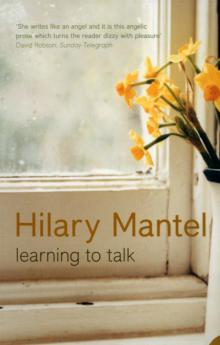 Learning to Talk
Learning to Talk How Shall I Know You?: A Short Story
How Shall I Know You?: A Short Story A Change of Climate
A Change of Climate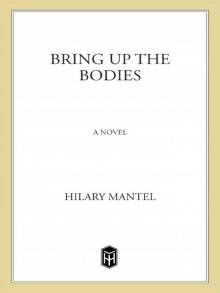 Bring Up the Bodies
Bring Up the Bodies The Assassination of Margaret Thatcher: Stories
The Assassination of Margaret Thatcher: Stories Beyond Black: A Novel
Beyond Black: A Novel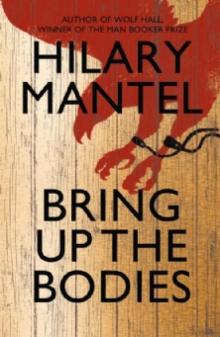 Wolf Hall: Bring Up the Bodies
Wolf Hall: Bring Up the Bodies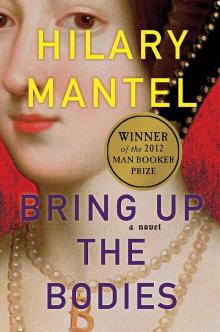 Bring Up the Bodies tct-2
Bring Up the Bodies tct-2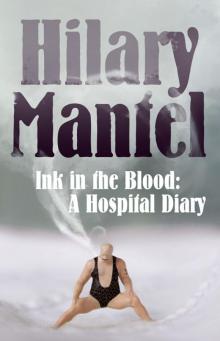 Ink in the Blood
Ink in the Blood The Assassination of Margaret Thatcher
The Assassination of Margaret Thatcher Eight Months on Ghazzah Street: A Novel
Eight Months on Ghazzah Street: A Novel How Shall I Know You?
How Shall I Know You? A Change of Climate: A Novel
A Change of Climate: A Novel The Giant, O'Brien: A Novel
The Giant, O'Brien: A Novel Fludd: A Novel
Fludd: A Novel A Place of Greater Safety: A Novel
A Place of Greater Safety: A Novel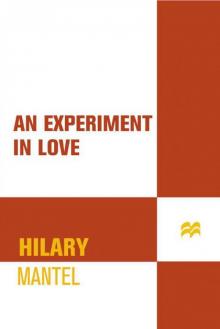 An Experiment in Love: A Novel
An Experiment in Love: A Novel